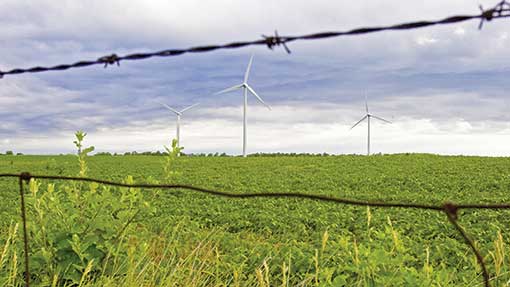Farmers warned to review renewables VAT rules

The VAT treatment of renewable energy schemes must be carefully assessed in terms of the likely output and how it will be used or sold.
Input VAT is often claimed on installations, either through an existing business or a new registration for the energy project itself. However, accountant Saffery Champness warns that once energy is being generated, HMRC will be keen to see VAT charged where appropriate on any output.
“VAT registration can be beneficial to new renewable energy ventures in the early stages, when significant set-up and capital costs are being incurred,” said David McGeachy, a member of the renewable energy team at Saffery Champness.
“The ability to recover VAT can make all the difference to funding and making the venture viable. However, once a scheme is up and generating power, VAT must be accounted for on income earned in the UK.
“We have encountered situations where the energy from an installation on which VAT has been claimed is simply being used privately, or no trading in energy is taking place, or where trading has ceased.
“In these situations, often unwittingly, significant VAT costs can be triggered. The VAT men are alert to this – they want to see VAT come back. They will expect to see a long lead time on these projects, but there will be a point where they start to ask questions.”
Generally speaking, HMRC will seek to collect VAT from the use of goods or services where VAT has been previously recovered, no matter how long ago, he warned. Once energy is being generated and traded, HMRC will expect to collect the VAT due on its sale. Where energy is not being traded but VAT has been recovered, there may be a case for VAT funds recovered to be repaid.
“If the registration was set up to reclaim VAT on the construction, and no income subsequently arises, HMRC will seek to recover it. If you are using the energy in your trading business that should be OK subject to the normal VAT recovery rules. However, if you divert some of the energy from business use to domestic/private purposes, and have previously reclaimed VAT on the construction, the taxman would seek to collect a proportion of the VAT.”
Mr McGeachy said the nature of energy projects meant plans could change along the way from planning to full operation and some had been caught out by the VAT issue because of this.
